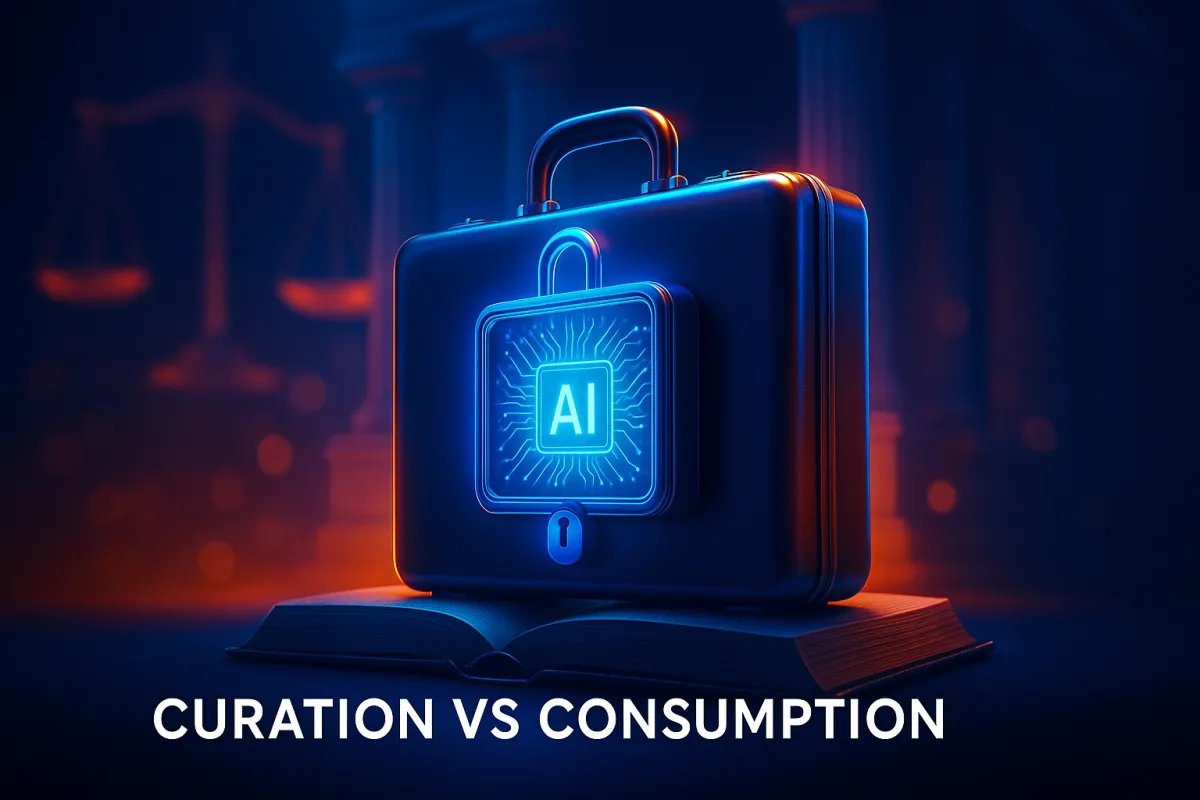
Why Legal AI Debates Miss The Point
Legal AI adoption jumped from 19% to 79% in a single year. Yet most firms are still stuck debating whether AI belongs in law at all.
When implementing AI systems across legal firms, you realise there's a massive gap between boardroom discussions and trenches reality.
Boardrooms debate theory. Trenches solve problems.
The Real Question Firms Ask
The firms calling Digital Suite aren't asking "Should we use AI?" They're asking "How do we use it responsibly to free up time for actual client strategy?"
The difference matters.
In practice, AI streamlines intake processes, summarizes complex documents, and improves legal marketing clarity. Especially in regulated markets where precision is everything. The professionals in the trenches aren't debating theory. They're experimenting, iterating, and building trust with tools that assist rather than assume.
The missed opportunity isn't whether AI can think like a lawyer. It's how much more lawyers could do if they didn't spend their day formatting PDFs.
The Compliance Trap Every Firm Falls Into
Here's the dangerous assumption I see repeatedly: firms think "responsible" AI use means treating it like an intern. Ask it questions. Trust the answers. Add a disclaimer somewhere.
In regulated industries like law, that's a fast track to reputational disaster.
Real responsibility starts with control over source data. The moment you assume a generic AI understands your regulatory context without oversight, you're not being responsible. You're being reactive.
Curation Versus Consumption
Firms that get AI right start by asking: "What data should this AI see, and what should it never touch?"
They feed systems only validated, jurisdiction-relevant materials. Local statutes, precedent cases, internal style guides. Often through closed-loop systems or document upload interfaces. These firms build AI around their expertise, rather than expecting AI to have expertise by default.
Firms headed for compliance nightmares take an open-web approach. They use general-purpose chatbots without boundaries, assuming AI can "just Google it." In legal contexts, that opens doors to outdated precedents, hallucinated rulings, or applying UK law to South African matters.
When AI pulls from everywhere, it's accountable to no one.
The safest firms treat AI like a high-speed paralegal with a carefully locked briefcase.
What Clients Actually Think
Here's what surprises most lawyers: clients are far more concerned about whether their lawyer is still thinking than whether AI is involved. Data backs this up. 70% of clients either prefer or are neutral toward firms using AI.
Many clients are actually relieved their lawyer is using every available tool to be more efficient, accurate, and responsive. What unnerves clients is the idea that decisions get outsourced to machines without human oversight.
When we implement closed-loop systems, we emphasize that AI works behind the lawyer, not instead of them. It speeds up admin, summarizes case law, and surfaces relevant information. But every strategy, argument, and decision remains human-led.
AI doesn't remove trust. It makes room for lawyers to earn trust more visibly.
The Identity Shift Nobody Talks About
The real transformation isn't technological. It's psychological.
For many legal professionals, value has always been tied to what they know. When AI starts knowing things faster, there's genuine fear of becoming irrelevant. The reality I see in practice is the opposite.
When machines handle mechanical thinking, lawyers are free to do human thinking. Pattern recognition, empathy, judgment, advocacy. The shift we coach is from "I know everything" to "I guide through anything." From expert to interpreter. That reframing helps legal professionals not just retain their value, but elevate it.
In a world flooded with information, clients don't just need answers. They need someone they trust to make sense of the answers. That's still deeply human work.
How Legal Practice Changes First
The transformation almost always starts with internal workflows. Not because that's where firms want to begin, but because that's where pressure builds fastest.
Once lawyers realize they're burning hours on repetitive research, drafting, and summarizing tasks, the pain becomes too obvious to ignore. The shift begins with efficiency, automating what doesn't require legal reasoning. But it quickly evolves into something bigger.
The turning point comes when lawyers stop seeing AI as a back-office tool and start using it as a thinking partner. That's when client experience changes too. Faster responses, clearer explanations, more proactive insights.
Relationships improve because lawyers now have more time to be strategic, empathetic, and human. Workflows change first, but mindset is the real unlock.
The Future of Legal Practice
In five years, the legal profession will feel less like a fortress of guarded knowledge and more like a dynamic advisory relationship.
Lawyers won't just be legal technicians. They'll be strategic translators, constantly navigating between complex inputs and human outputs. AI, data, and case law on one side. Judgment, trust, and action on the other.
The firms that thrive won't be the ones with the most billable hours. They'll be the ones that can scale insight without losing humanity.
Client expectations will evolve too. They'll expect faster answers, but also deeper personalization. Not just "what's legal," but "what's right for me." The lawyer-client relationship will be less hierarchical, more collaborative, and frankly, more creative.
AI will make law more accessible. The best lawyers will be the ones who can curate, not just consult. While others debate whether AI belongs in law, grounded implementation is already reshaping the profession.
The question isn't whether to adopt AI. It's whether you'll lead the transformation or get left behind by it.
What's your firm's biggest hesitation about AI implementation — is it compliance concerns, client perception, or something else entirely?

